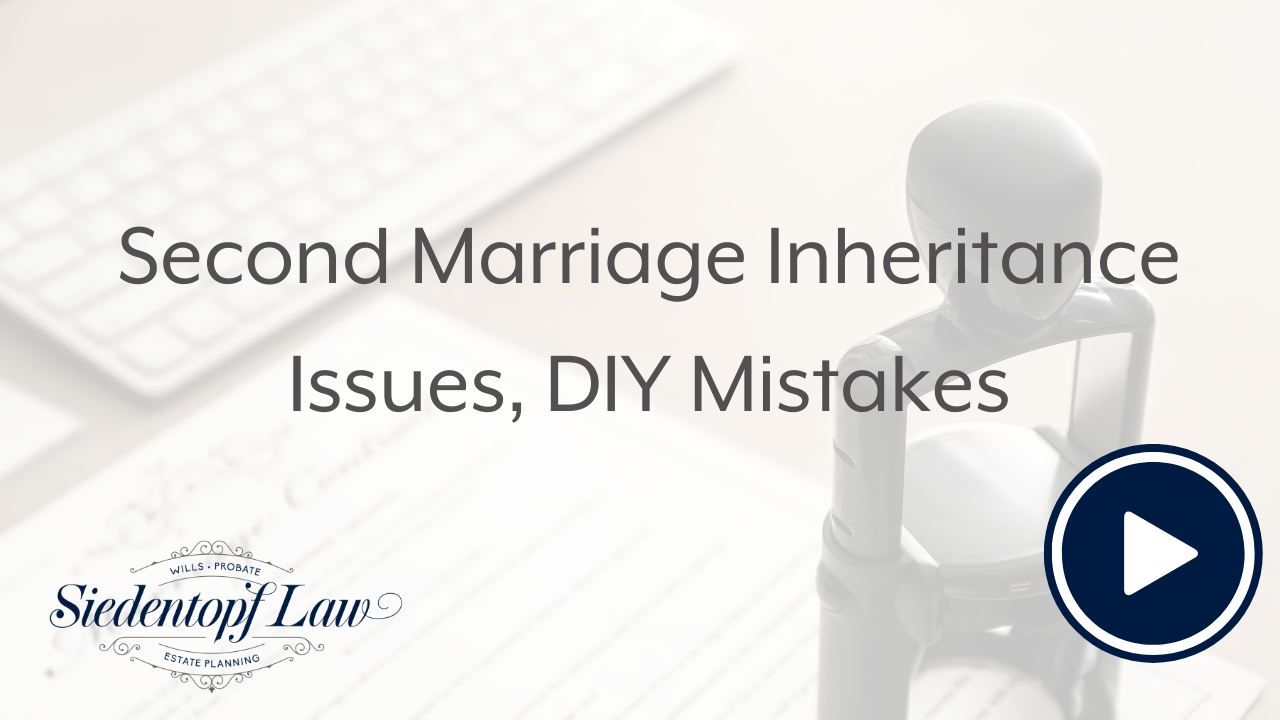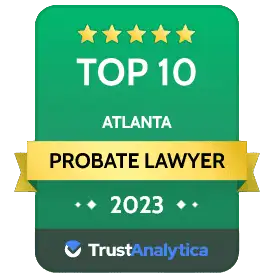Thanks for watching our video about issues to consider when creating an estate plan for a second marriage.
As you heard from Sarah, we see a few issues regularly when handling probate for second marriages. These issues come into play most often when people DIY their estate plans. DIY estate plans are legal in Georgia, but we always recommend hiring an attorney to help you draft these documents, as a skilled professional is trained to help you avoid all the pitfalls in estate planning— not just the most popular errors.
Below we’ll discuss common mistakes and how you can avoid them with your estate plan for your second marriage.
Not Considering a Prenup
A Prenuptial Agreement, most commonly referred to as a “Prenup”, is a great tool that can protect everyone involved in a marriage— especially if this is not the first marriage.
Many people feel queasy about even broaching the subject of a Prenup with their potential new spouse. They may think their spouse-to-be may become concerned about their level of commitment, or think they have cold feet.
A Prenup can mean many things for all those involved. But it does not mean there is a lack of love or commitment.
When a Prenup is used it outlines very specific things and what happens when specific events occur, such as divorce or death. A Prenup is a legal document that says “my stuff is my stuff, and your stuff is your stuff, and if we die or divorce this is what happens.”
Just because you have a Prenup that states your new spouse is not entitled to your property at death does not mean you can’t name them the beneficiary of the same property in your estate plan.
So, a Prenup is an incredibly valuable estate planning tool for a second marriage. BUT it has to be executed prior to the marriage taking place. If you didn’t create a Prenup and you’re already married, that’s okay! There are other excellent estate planning tools to accomplish your wishes. It’s just a matter of choosing them and carefully stating exactly what is needed.
Not Updating Beneficiary Designations
Beneficiary designations are one of the most powerful, and easiest, estate planning tools. You have likely already designated beneficiaries on various accounts.
One of the best things about beneficiary designations is that they skip the probate process. Because a beneficiary is designated the asset goes to that beneficiary upon your death.
A great example of beneficiary designations is a life insurance policy or a payable on death bank account.
As I mentioned above, you likely already have named beneficiaries on some of your accounts. A major pitfall in estate planning is designating a beneficiary and then never reviewing it ever again.
In many cases decades have passed, your children have become adults, perhaps you named your former spouse as beneficiary, and you never updated it. Or maybe, sadly, one of your beneficiaries has predeceased you. Failing to update your beneficiary designations could create major problems for your heirs.
At Siedentopf Law we recommend reviewing your beneficiary designations once a year. Chances are everything will be exactly as you wish, but if you’re in the habit of looking at it every year you won’t miss the changes that need to be made.
Leaving Your New Spouse in Control of Money for Their Step-Children
The last one is most likely the trickiest for your estate plan for a second marriage. You love your new spouse, and your children probably do too. However, we have found leaving the adult child or children’s inheritance in the control of their stepparent usually causes a lot of stress and disharmony.
If you do not feel that the adult child is ready for their inheritance you can leave the assets in a Trust controlled by an unbiased third-party trustee or even, if you feel comfortable with the option, the child’s other parent (if living). Know there are many financial institutions and even law offices who manage Trusts as part of their business.
These are the three most common issues we see in estate plans for a second marriage, but know that every estate is unique and so are the issues each estate may face. Please contact our office today by calling us at (404) 736-6066 or visiting our website to schedule a consultation. We are here to help you structure your estate plan in the best way possible for your blended family.








